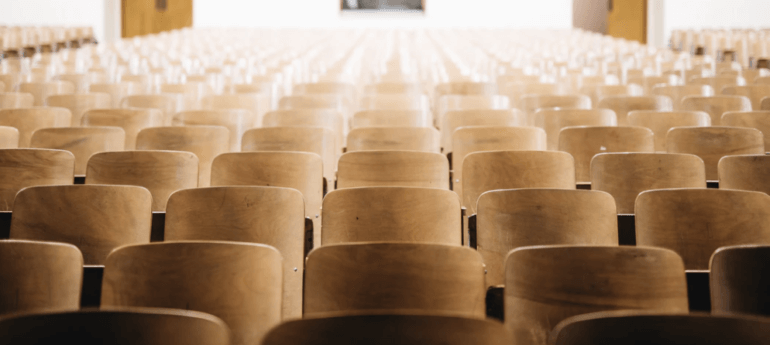
Why Antisemitism Affects Orthodox Jews More Acutely
When I was a kid, I didn’t really believe in modern anti-semitism. So I found it surprising when I was asked to speak on the topic for the You Speak, We Listen: Together We Stand event, a quarterly virtual storytelling event for women created by author Alyssa Berthiaume to empower women to tell their stories.
The virtual event was born and began in September 2020 with speakers from the Black community and their stories about how racism has impacted their lives. It has since expanded to other topics. Last week, the group invited Jewish American women to the virtual stage to talk about our experiences of antisemitism. As the only Orthodox Jewish speaker, I was honored, and at first a little daunted, to share my experience in such an event.
Anti-semitism hasn’t always been a key feature in my life. I explained in my speech that as a child, I honestly didn’t understand my mother’s skittishness about publicly identifying as a Jew. I grew up in a secular Jewish neighborhood in Philadelphia, and while most of the people around me were Jews, I also had friends from other ethnicities. I learned about the Holocaust and the long history of Jewish persecution in Hebrew School; my family fortunately had not experienced any of those things directly. Growing up, I personally felt Jews shouldn’t be bound by, or traumatized by, all those terrible things that happened in the past.
So when the You Speak event coordinator encouraged me to share my personal experience of anti-semitism, at first I wasn’t quite sure what I would say. But then she asked me a little bit about my lived reality as a Jew. We talked about the synagogue security team and the police cars out front. I remembered the “stop the bleed” trainings my son and I did, with a lot of trepidation, after the attack on the Tree of Life synagogue in Pittsburgh. I had to acknowledge that anti-semitism has recently become a more significant concern in my life.
I suppose some Jews can be identifiable by a certain “look,” a Jewish star or a last name. Certainly, Jews are always vulnerable when they gather publicly in synagogues or schools, regardless of their denomination or type of practice. And yet, many of the other Jewish speakers at last week’s event shared that because they “didn’t look Jewish,” they didn’t experience anti-semitism directly until they were in a place where they were the only Jewish person around. Growing up as a secular Jew, I had a similar experience.
The fear of anti-semitism feels a lot more immediate to me now that I’ve chosen to become an Orthodox Jew and can be identified as Jewish on the street. In my talk, I explained this using examples of identifiable Jews being attacked, such as the rabbi assaulted outside of his synagogue in San Diego, an Orthodox man beaten on the street in the Brooklyn neighborhood of Williamsburg, and Rabbi Shlomo Noginski, attacked wearing a kipah and standing in front of a large menorah on the steps of a Jewish school.
In particular, much attention recently has focused on the experience of Orthodox Jewish women and how they are presented in the media. In my talk, I made it clear that I am not repressed or oppressed. I chose to be an Orthodox Jew because its wisdom, community, and spiritual fulfillment spoke to me deeply. It is a choice that empowers me, and in my writing and speaking, I try to use that wisdom to empower others, Jewish or not. Living this Torah life is worth it to me, even if embracing it fully makes me more identifiable as a Jew in a time, unfortunately, when it seems anti-semitism is on the rise.
I think other religions and ethnicities have their own thinking about the roles they play in the redemption and healing of the world. I concluded my talk by sharing that, as a Jew, I was taught from the youngest age we are to be a Light to the Nations; that we’re meant to model holiness in all its forms in the world. While not excluding anyone else’s purpose in the world, I take that responsibility seriously. I try hard to be that kind of person, and I just hope and pray G-d will protect us – all of us – as we do what we’re here to do.
It was an honor to represent the Jewish community in this conversation, and especially the Orthodox community. I truly appreciated that Jews were considered among the minorities that are facing challenges in America today. This was a moment when allyship worked. I intend to participate in future events to hear from other women about their experiences, and I encourage all of us to join these kinds of well-intentioned, open-hearted discussions – whether we are the ones to speak, or the ones to listen.
If you found this content meaningful and want to help further our mission through our Keter, Makom, and Tikun branches, please consider becoming a Change Maker today.








1 comment
Sort by
It was wonderful hearing your and all of the speakers. Thank you for sharing your story, Evonne.
Susie